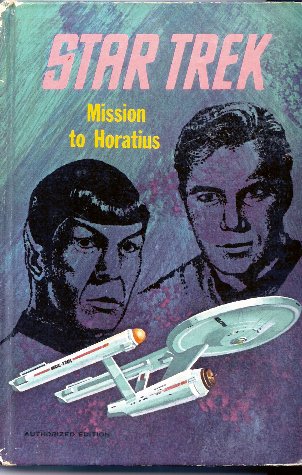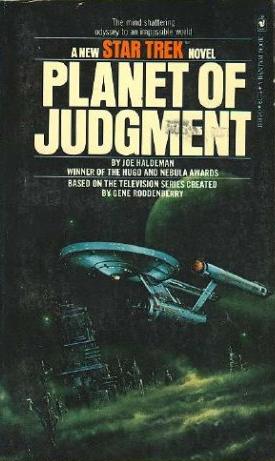In this update, fallout from the 1976 Presidential Election, Elvis defeats his drug addiction in a People Magazine exclusive, and more Star Trek TAS episodes.
HOW DID THE DEMOCRATS LOSE? SENATORS KENNEDY, GLENN OFFER DIFFERENT VIEWS
November 8, 1976
The Democratic Party is still reeling from their election loss last week to Ronald Reagan and his conservative Republican coalition. Leading Democrats are performing an autopsy of sorts to determine why President Muskie, the expander of Medicare and rebuilder of schools across America, was defeated. Senator Edward Kennedy from Massachusetts accused the American people of becoming pessimistic and no longer believing in the power of the government to improve their lives. "People did not immediately see a benefit from the Medicare expansion, which Reagan will take advantage of when he's President," Kennedy said. "The Medicare phase-in was planned for four years, when it should have been planned for one or two. Some families who will be eligible for Medicare will only make it into the program next year or in 1978. Help did not come fast enough." Kennedy also blamed Reagan's demonization of Muskie over Communism as a reason for Muskie's demise. "President-elect Reagan lied about President Muskie being soft on Communism," Kennedy said. "The Czechoslovakia crisis and President Muskie's willingness to allow South Vietnam to control its own affairs, which we Democrats largely believe should have happened several years ago, serious hurt the President. Americans are too hard-wired into this Cold War mentality, and Reagan took advantage." Kennedy believes that Americans should continue on the course set by Presidents Roosevelt, Truman, and Johnson. "Muskie had us on the right track with the Medicare expansion. In a Kennedy White House, Medicare will become universal and all Americans will be eligible for the program."
Senator John Glenn of Ohio took a different view. "We used to win consistently in the South until we were unfairly tarred as the party of civil rights in 1964," Glenn said. "We need to figure out a way to sell to our former voters, who still sometimes vote for Democrats on the state and local levels, that the civil rights legislation benefits all Americans, not just African-Americans. The Republicans, starting with President Nixon, created a schism in our party over civil rights, and we have to heal it somehow. Until we fix that, we start out at a huge disadvantage in presidential elections." Glenn disagreed with Kennedy that Americans have become a pessimistic people. "Americans are always optimists," Glenn said. "I must object to my fellow Senator from Massachusetts. We would not have built the greatest country in the world and landed men on the moon if we were not optimists at heart. I see optimism, even in trying economic circumstances, from my constituents in Ohio every time I return home from Washington." Glenn proposed a "Real Deal" for Americans that would alter some of the New Deal programs instituted by FDR in the 1930s. "I want to give Americans more flexibility with their government programs," Glenn said. "Americans should be allowed to choose how much money they place into Social Security and Medicare, instead of the government taking a fixed amount out of their paychecks. All Americans should contribute to Social Security and Medicare, but ensuring that the richest Americans contribute the most will allow the middle class to decide what their paychecks look like."

ELVIS: PRISCILLA, STAR TREK CURED MY DRUG ADDICTION
November 16, 1976
Elvis Presley, the King, has two important revelations for his fans: He had a drug addiction, and Star Trek, plus pleadings from his wife, Priscilla, contributed to his salvation from drugs. "I was in a really bad way with drugs," Elvis said. "I was taking opiates, Quaaludes, Demerol, you name it. I had a nine-year drug addiction, and it was ruining my life. I got fat, completely out of shape, and almost died once when trying to go to the bathroom." The King of Rock and Roll credited Priscilla primarily. "Priscilla knew I was dying, and I had to get into a program to clean myself up," Elvis said. "It was hard. I was sweating a lot, shivering a lot, and I felt like I would die in rehab because I was withdrawing from the medications." Elvis's counselor in rehab suggested to his group that they find a specific activity to partake in that would focus their minds, a method to psychologically move on from chemical influences. "So my counselor suggested Star Trek, because it was intellectually stimulating," Elvis said. "I wasn't a Star Trek fan, that was for bookworms and college-educated people, at least from my experience. But most of my fellow rehabbers were fans, so I joined along. We started acting out the parts from various episodes, and I liked playing Captain Kirk." Elvis says he has been free from drugs for six months now and is partaking in an intense workout regimen. "I want to get my body from the 1950s back," Elvis said proudly. "I was the biggest sex icon in the world once upon a time, and I want to be that again." When asked about potential concerts, Elvis immediately mentioned two artists: Willie Nelson and Johnny Cash. "Willie and Johnny are two incredible musicians. If they want me to team up with them, I'm ready to go."
ENGLAND ESCAPES ITALY WITH 1-1 DRAW
November 18, 1976
Brian Clough's England passed the first major test of their 1978 World Cup campaign by holding the Italians to a 1-1 draw in the Stadio Olimpico in Rome. It looked like England was doomed to defeat in the 36th minute, when Italian midfielder Giancarlo Antognoni scored a beautiful goal to put the two time world champions ahead. However, England was resolute in their defending after that, and equalised in the 64th minute when a Trevor Brooking cross found Kevin Keegan, who slotted home past the great Dino Zoff. England came very close to defeat again when a shot by Italian forward Roberto Bettega struck the post. The Italians kept on pressuring the England defence, but Emlyn Hughes was a colossus at the back. England goalkeeper Ray Clemence made a fantastic save on the Italian star Marco Tardelli five minutes from time that had observers comparing his stop to that famous Gordon Banks save on Pele in Mexico in the 1970 World Cup. With Finland and Luxembourg in the group, it is expected that the return match between these two sides at Wembley in November 1977 will determine who qualifies out of the group.
TAS EPISODES: NOVEMBER 1976
EPISODE 42: MISSION TO HORATIUS, PART I: The story is adapted from the book written in 1968 for a more child-oriented audience. Mack Reynolds gets the story credit. Air date: November 6, 1976.
Mission to Horatius is the first original Star Trek novel. Written by Mack Reynolds, the novel – intended as a young-adult publication – was first published by Whitman Publishing in 1968. From the book jacket While exploring a new star system, NGC 434, Captain Kirk and the crew of the Starship...

memory-alpha.fandom.com
EPISODE 43: MISSION TO HORATIUS, PART II: Air date: November 13, 1976.
EPISODE 44: PLANET OF JUDGMENT, PART I: The story is adapted from the book written in 1977 for a more child-oriented audience. Joe Haldeman, who is working on a novel of the same name, gets the story credit. Air date: November 20, 1976.
The mind shattering odyssey to an impossible world Planet of Judgment is a Bantam TOS novel, written by Joe Haldeman, first published in August 1977. From the book jacket Unable to proceed. Shuttles seriously damaged. Not safe to land here. Some crewmen dead. On a routine mission to Starfleet...

memory-alpha.fandom.com
EPISODE 45: PLANET OF JUDGMENT, PART II: Air date: November 27, 1976.
NOTE: Ted Kennedy was one of Ronald Reagan's fiercest opponents in the Senate IRL, while John Glenn was more moderate and encouraged bipartisanship.
NOTE: Elvis died on August 16, 1977, when he was severely constipated and tried to go to the bathroom, and he had an aortic aneurysm.
NOTE: England lost to Italy 2-0 in that game in Rome IRL.


